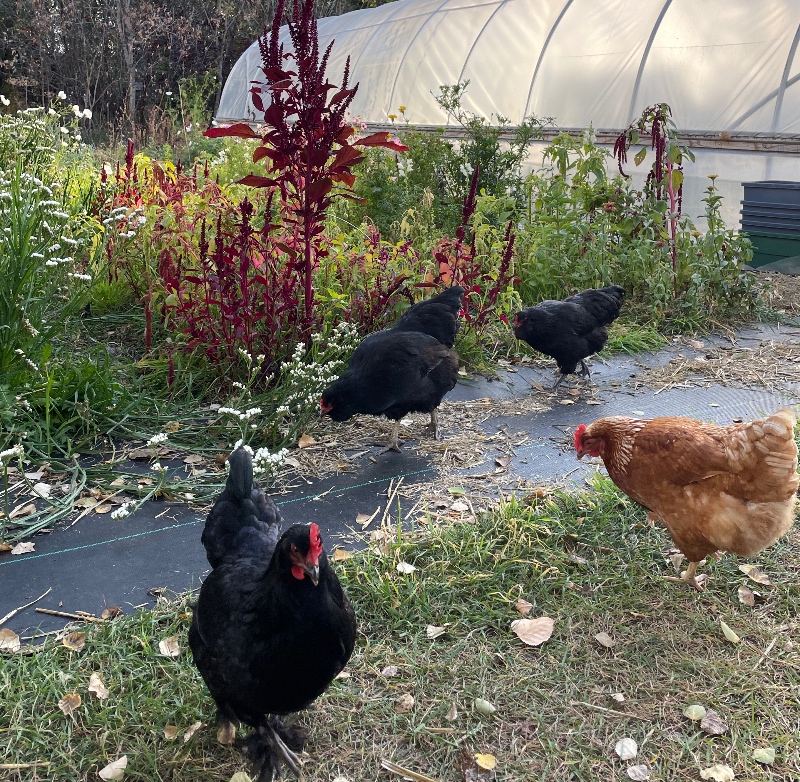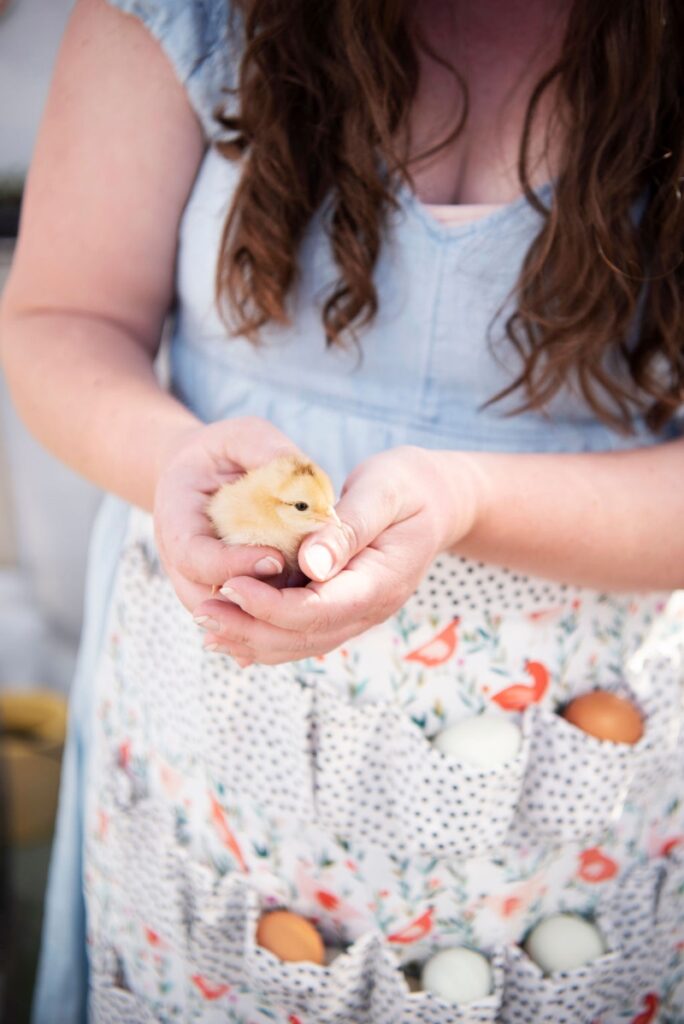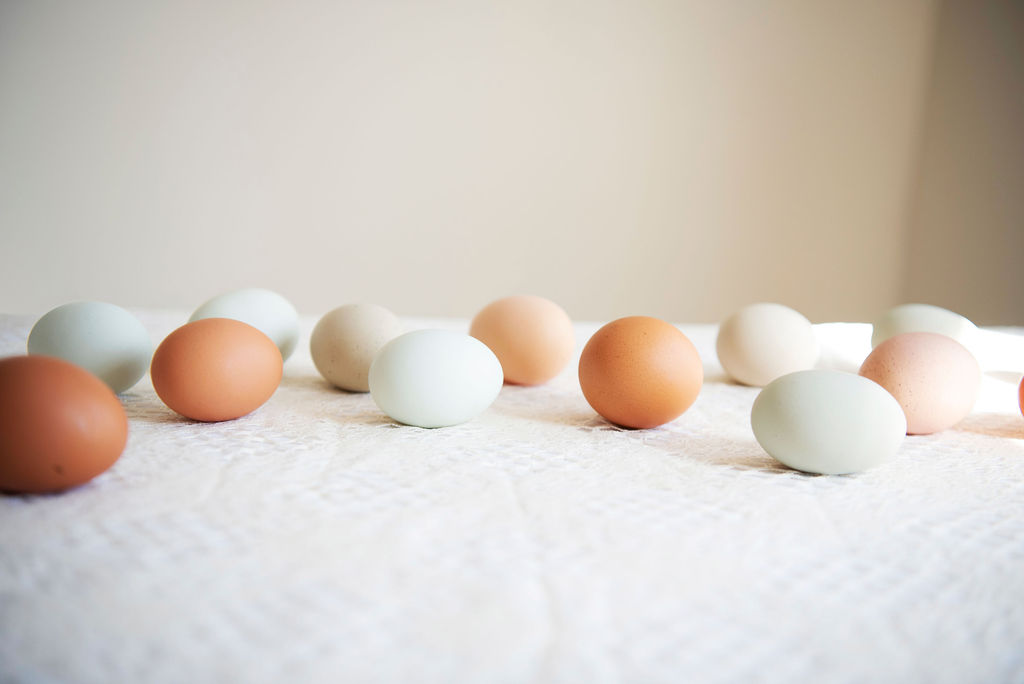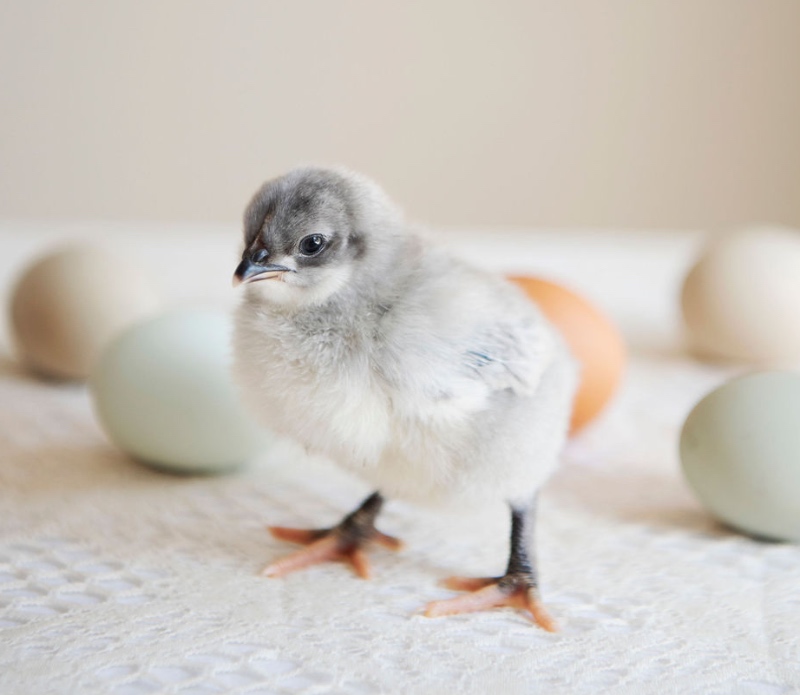Do you have a hen that won’t leave to coop, no matter how hard you try? Or do you have a hen who disappeared and you assumed died, only to briefly reappear for food and water and disappear again? You my friend, have a broody hen. This means your hen wants to be a Mama and will do anything to get some eggs to hatch.
While there are ways to break a hen’s broodiness, hens are much more efficient at hatching than incubators, so if you had plans to increase your flock anyway, you might want to give your hen a few fertilized eggs and let her have her wish.

Recently 3 out of 5 of my mature hens have gone broody. I’ve learned a lot from having broody hens, and I actually now prefer it to hatching eggs in an incubator–although I do miss having baby chicks in the house! In this post I’ll share the pros and cons, what surprised me about having broody hens, and what you can do to take good care of your broody hen.
Not All Broody Hens Make Good Mamas
Comparing the three hens to each other, they each had very different personalities as a Mom. Violet and Hershey were the better of the three, although Violet was more protective of her eggs and babies. She would often snap at me when I would try to check her eggs during the 21 days. Hershey, on the other hand, would let me pick her up to check if she had an extra eggs under her and never snapped at me. Jane Fonda was very elusive, and was my hen who ran away to have her babies.
Not all breeds like to go broody. My Rhode Island Red Chicken, Betsy, has zero interest in going broody or in the resulting chicks. Rhode Island Reds, as well as Isa Brown and Leghorns tend to not go broody. If you don’t want your hens to go broody, those three breeds would be very useful and are good egg layers.
Orpingtons, Brahmas, Silkies and Chantecler all tend to go broody and be good moms.

Getting Fertilized Eggs
This might go without saying, but for all the beginners in the room–if you don’t have a rooster, you’ll need to get fertilized eggs from somewhere else. We do not have a rooster, so every time my hens went broody, I would get a few eggs from my neighbour.
Thankfully, hens will sit on other hens eggs and don’t care if the eggs aren’t ones they’ve laid themselves.
Before you give a hen eggs, or once you decide that the ones she’s sitting on are going to be the ones she will hatch (if they’re already fertilized), make sure you mark those eggs with an “x” or some other marking. When the broody hen takes a break to get food and water, other hens sometimes use that opportunity to lay their own eggs on that clutch. If you don’t mark the eggs, things will get confusing fast.
Make sure you check underneath your hen daily for any eggs that aren’t hers.

Chickens Know When the Chick Isn’t Developing
One of the things that surprised me the most when comparing using an incubator and having a hen go broody, is that the hen will know when the egg is no longer viable. Our Orpington, Violet, would kick out the egg as soon as she could sense the egg was no longer good. Hershey was not as good at detecting if the chick had stopped developing, but at 23 days she kicked out the two eggs that were no good.
Unlike using an incubator, there’s no need to candle when you have a Mama Hen!
How to Take Care of Your Broody Hen
Now that you’ve decided to let your broody hen hatch some chicks, what do you do? Here’s your step by step guide:
- Provide food and water close to where the hen is nesting
- Switch from layer feed to grower feed–she doesn’t need the extra calcium now
- Mark her eggs with an x and check everyday that she doesn’t have any extra eggs from other hens
- Discard any eggs she rejects
Other than that, there really isn’t anything for you to do and you can just let nature take it’s course. Hopefully 21 days later you’ll have some sweet little chicks in your flock.
Chicks with a Mama Hen Behave Differently
If you’ve only ever seen chicks as a group that have been purchased or from eggs that you have hatched indoors, you are in for a treat. There is something so beautiful about seeing a Mama Hen with her chicks. The babies are so safe cuddled up in her wings, and my heart has melted more than once as I’ve seen them all foraging for food. The Mama will chew up a piece of food that’s too big, spit it out, and give it to her chick.
One of the downsides is that it is more difficult to get the chicks to be friendly with you. Mama hens are extremely protective, and unlike chicks without Mamas, they do not see you as the provider of food.
Baby chicks also call for the their Mama Hen incessantly. There is never a quiet moment when they’re out for the day, and there’s only silence when they’re back under her wings.

When Will the Broody Hen Start Laying Eggs again?
I imagine it will vary from chicken to chicken, but I’ve noticed that it starts happening 2-3 weeks after the hen and chick start wandering around the coop separately.
We had a unique situation since we had two broody hens around a month apart. At first, the two hens would share mothering duties of the older chick. Eventually, Violet the Mom of the older chick left to join the rest of the flock, and now Hershey raises that chick as her own, even though it is a month older than her chicks.
I’ll update this post once Hershey starts laying again, but I assume it will be around when her chicks are 8 weeks old.

